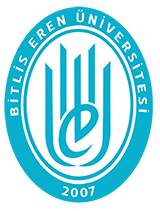| dc.description.abstract | Heavy metals are naturally present in the environment. As a result of human activities and some natural events,
mixing of these metals in water, air and soil is one of the most serious global problems. The toxicity of these metals
is also a serious global problem due to their accumulation in living things and non-biodegradable characteristics.
Increasing heavy metal pollution in aquatic and terrestrial environments requires improvement strategies such as
bioremediation to remove these metals from the environment for human and environmental health. In this study,
fungal isolation was performed to examine fungi with heavy metal remediation potential using sand samples from
Sugözü Beaches where are subjected to intense environmental effects due to human activities including industrial
facilities and marine traffic. This beach is also an important nesting area for the green turtle. Aspergillus alliaceus
isolated from this beach was identified using primers of internal transcribed spacer 1 and 4. To determine the
tolerance of A. alliaceus to iron, zinc, cobalt and copper, the fungus was inoculated into media containing metal
at different concentrations (200, 400, 600, 800, and 1000 ppm). Daily mycelium growths were recorded during a
ten day incubation at 30°C. A.alliaceus was found to tolerate Fe and Zn at all concentrations. Besides, it tolerated
Co and Cu up to 400 and 600 ppm, respectively. In this study, the tolerance of A. alliaceus to Fe, Zn, and Co was
determined for the first time and it is recommended that it can be used efficiently in bioremediation studies. | tr_TR |














